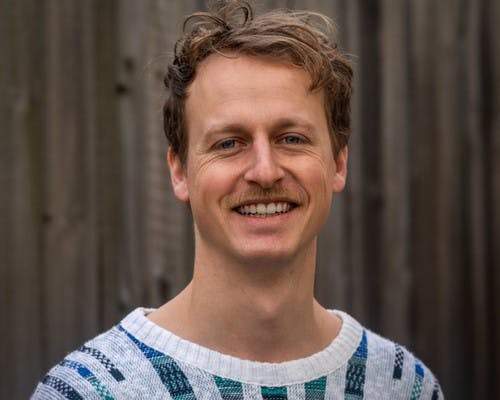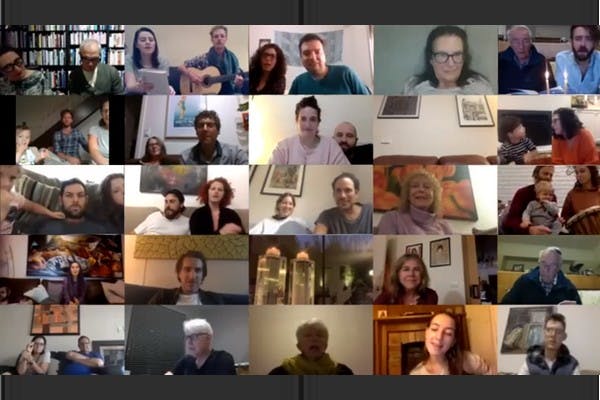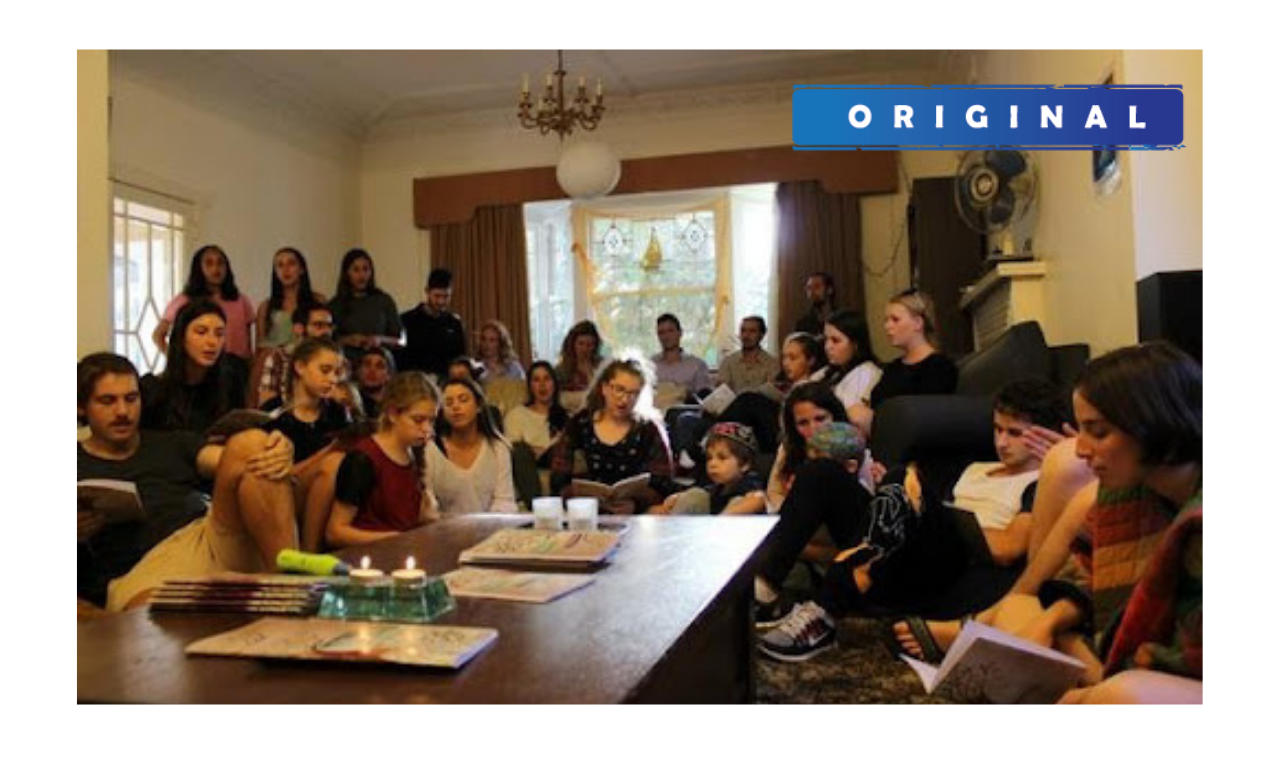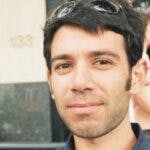Published: 15 October 2021
Last updated: 4 March 2024
BENJAMIN PREISS: Kolenu has struck a chord with young Jews craving something different. Its co-founder talks about the secret of its success and post-Covid future
IN 2019 CROWD NUMBERS were soaring at Kehilat Kolenu’s Melbourne gatherings, culminating in a Yom Kippur service that attracted 750 people.
Demand was so high that organisers introduced a ticketing system to make sure the venue, Habonim Dror’s hall in Elsternwick, was not completely swamped.
Around this time the Shabbat services were regularly attracting about 110 people who were drawn to the secular congregation’s style of Judaism, which emphasised music and group singing rather than traditional prayers.
Co-founder and community director Ash Densham says Kolenu, Hebrew for “our voice”, had evolved rapidly from the first service in 2012 held in the living room of his brother’s St Kilda share house.
In those early days about 30 people (mostly former and current Habonim leaders) would gather on the wooden floor, the scent of incense wafting through the house as djembe drums, guitars and singing bounced off the walls on Friday evenings.
Densham says they came together for Kabbalat Shabbat services that celebrated a Judaism that was free of religious rigmarole but fitted neatly with their contemporary moral values.

“We were tapping into that philosophy and bringing that to life in Melbourne,” he says. “The group of us who started it off were really just looking for more musicality.”
The format was modelled on a religious Kabbalat Shabbat service and they made a siddur but it omitted almost all references to God.
They retained the psalms, signifying the six days of creation, and the hymn Lecha Dodi for its traditional significance.
We wanted it to be a participatory experience. You don’t come to Kolenu to talk to your friends. You come to sit and sing. You talk to them afterwards.
“We wanted it to be a very participatory experience,” he says. “You don’t come to Kolenu to talk to your friends. You come to sit and sing. You talk to them afterwards.”
Kolenu was beginning to attract a wide range of age groups, including parents and grandparents.
But in March last year the pandemic threatened to stall much of what the Kolenu founders had achieved in creating a unique expression of Judaism in Melbourne.

When the first lockdown was declared, like most organisations in Australia, the congregation was gripped briefly by a sense of paralysis. The atmosphere of singing in concentric circles was impossible to replicate online.
When the first lockdown was declared, the congregation was gripped briefly by a sense of paralysis.
“The first three weeks we just didn’t do anything.”
But on April 3 last year they held their first Shabbat service on Zoom and 130 people joined, exceeding previous average attendances.
“Everyone was craving some sort of connection.”
Even though choir-like singing is all but impossible over zoom, Kolenu is still managing to strengthen the connection with its community.
The online format also delivered some unexpected benefits, including unrestricted attendance numbers with Yom Kippur this year attracting about 1200 people.

Jews from Sydney, Perth, Israel and the United States also joined in.
The online Shabbat services feature a five-member musical committee, which leads the singing but the congregation remains on mute. “We just assume they’re singing along,” Densham says.
The online Shabbat service format is similar to those held in person with a rotating line-up of community members who discuss that week’s parshah from the Torah.
The online format has delivered some unexpected benefits, including unrestricted attendance numbers. Yom Kippur this year attracted about 1200 people.
Melbourne historian and academic, Mark Baker, says over the past decade there has been a generation of disaffiliated youth seeking meaning in their religious Jewish practice.
“The old institutionalised ‘cathedral’ synagogues didn’t answer their needs,” he says. “The phenomenon has reinvented the Chavura movement of 1960s America – a mixture of neo-Chasidism and hippie culture. The movement is generally lay-led, egalitarian and feminist, progressive in social values and reinfuses Jewish religious ritual with contemporary meaning.”
Densham rejects any suggestion that Kolenu offers a lesser version of Judaism because of its secular perspective. If anything, he says, it has expanded the organisation’s reach across age groups.
“Grandparents and parents want to sing with their kids. They don’t want to just go to shule alone.”
He insists Jewish religious practice and culture have changed over the centuries and found ways to remain meaningful in modern life.
As Melbourne prepares to emerge from lockdown when Victoria reaches 80 per cent double dose vaccination, Kolenu will have to find a way to adapt its services again to meet Covid safety requirements.
Densham says they will probably meet in Caulfield Park over summer until the rules allow them to return to Waks House, which is home of the Jewish Labor Bund in Melbourne.
But Densham admits he is unsure how post-lockdown services will recapture the intimacy of previous in-person Shabbats while tight restrictions are in place.
“When you’re in a big space or Caulfield Park a lot of that … tone gets lost and it’s less of an immersive experience.”
Yet he still expects congregants will be keen to return to Kolenu services post-lockdown.
He says Kolenu will continue providing a space for reflection and contemplation in a Jewish context, which may become even more important when we return to our busy lives as restrictions ease.
“As humans we’re so prone to forgetting important things,” Densham says, “We need time in our week or month to revisit those things.”
Photo: a Kehilat Kolenu service, pre-Covid (courtesy)




